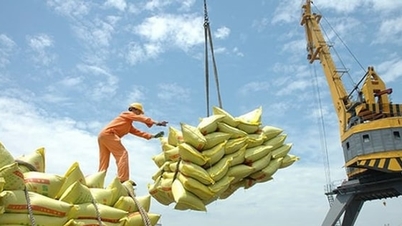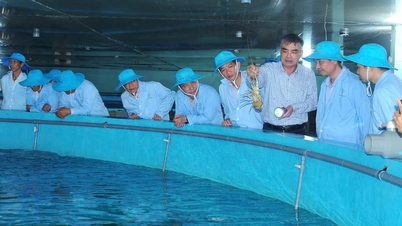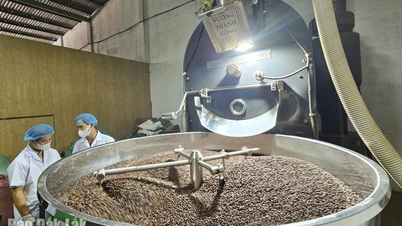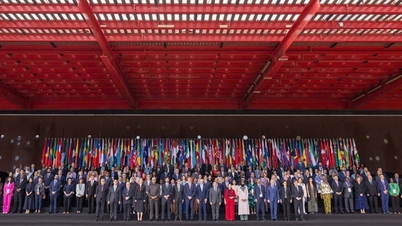The September Purchasing Managers' Index (PMI) for Asia, released by Jibun Bank (Japan), fell to 49.7 in September, from 49.8 the previous month. This is the third consecutive month that the index has been below the 50-point threshold.
In China, the Caixin/S&P Global Manufacturing PMI fell to 49.3 last month from 50.4, its lowest level since July 2023, marking a contraction. Production in Japan also fell, while Taiwan (China) slowed to 50.8.
In addition, South Korea's export turnover also slowed down in September, as the amount of goods to the US barely increased, in the context of the world's largest economy being in recession.
 |
| Global manufacturing activity contracted in September due to the economic downturn and weak consumer demand. Photo: Pixabay |
" Lower new orders were the main factor weighing on manufacturing ," said Shivaan Tandon, market economist at Capital Economics, referring to the Asia PMI.
Demand in many places will continue to weaken in the coming time, putting pressure on production activities in Asia in the short term, he said.
Meanwhile, the Eurozone PMI released by S&P Global (a US information and analysis company) reached 45 points. Although it was 0.02 points higher than the preliminary estimate, it was still below the threshold of 50.
Rising tensions in the Middle East are causing European businesses to worry about the impact on production and the potential for increased costs.
Eurozone manufacturing activity slowed at its fastest pace since the start of the year as weak demand forced factories to cut prices. Germany, Europe’s biggest economy, posted its biggest 12-month decline.
" The eurozone recovery that was expected at the start of the year has now turned out to be quite lackluster. Confidence is relatively low and the manufacturing sector remains very weak, " said Natasha May, an expert at JP Morgan Asset Management.
In addition, Dr. Cyrus de la Rubia, chief economist of the Hamburg Commercial Bank (Germany), forecasts that industrial output in the third quarter of the eurozone will decrease by 1% compared to the previous quarter.
He said there were more and more small layoffs. In addition to falling demand, European companies were facing supply chain difficulties, a situation rarely seen in the past 30 years, except during the pandemic.
“ New orders are falling and we expect production output to fall further into the end of the year ,” Mr. Rubia pointed out.
Source: https://congthuong.vn/san-xuat-toan-cau-chung-lai-nguy-co-suy-thoai-can-ke-350161.html


![[Photo] Solemn opening of the 12th Military Party Congress for the 2025-2030 term](https://vphoto.vietnam.vn/thumb/1200x675/vietnam/resource/IMAGE/2025/9/30/2cd383b3130d41a1a4b5ace0d5eb989d)
![[Photo] The 1st Congress of Phu Tho Provincial Party Committee, term 2025-2030](https://vphoto.vietnam.vn/thumb/1200x675/vietnam/resource/IMAGE/2025/9/30/1507da06216649bba8a1ce6251816820)
![[Photo] General Secretary To Lam, Secretary of the Central Military Commission attends the 12th Party Congress of the Army](https://vphoto.vietnam.vn/thumb/1200x675/vietnam/resource/IMAGE/2025/9/30/9b63aaa37ddb472ead84e3870a8ae825)


![[Photo] President Luong Cuong receives President of the Cuban National Assembly Esteban Lazo Hernandez](https://vphoto.vietnam.vn/thumb/1200x675/vietnam/resource/IMAGE/2025/9/30/4d38932911c24f6ea1936252bd5427fa)































![[Photo] General Secretary To Lam receives US Ambassador to Vietnam Marc Knapper](https://vphoto.vietnam.vn/thumb/1200x675/vietnam/resource/IMAGE/2025/9/29/c8fd0761aa184da7814aee57d87c49b3)































































Comment (0)